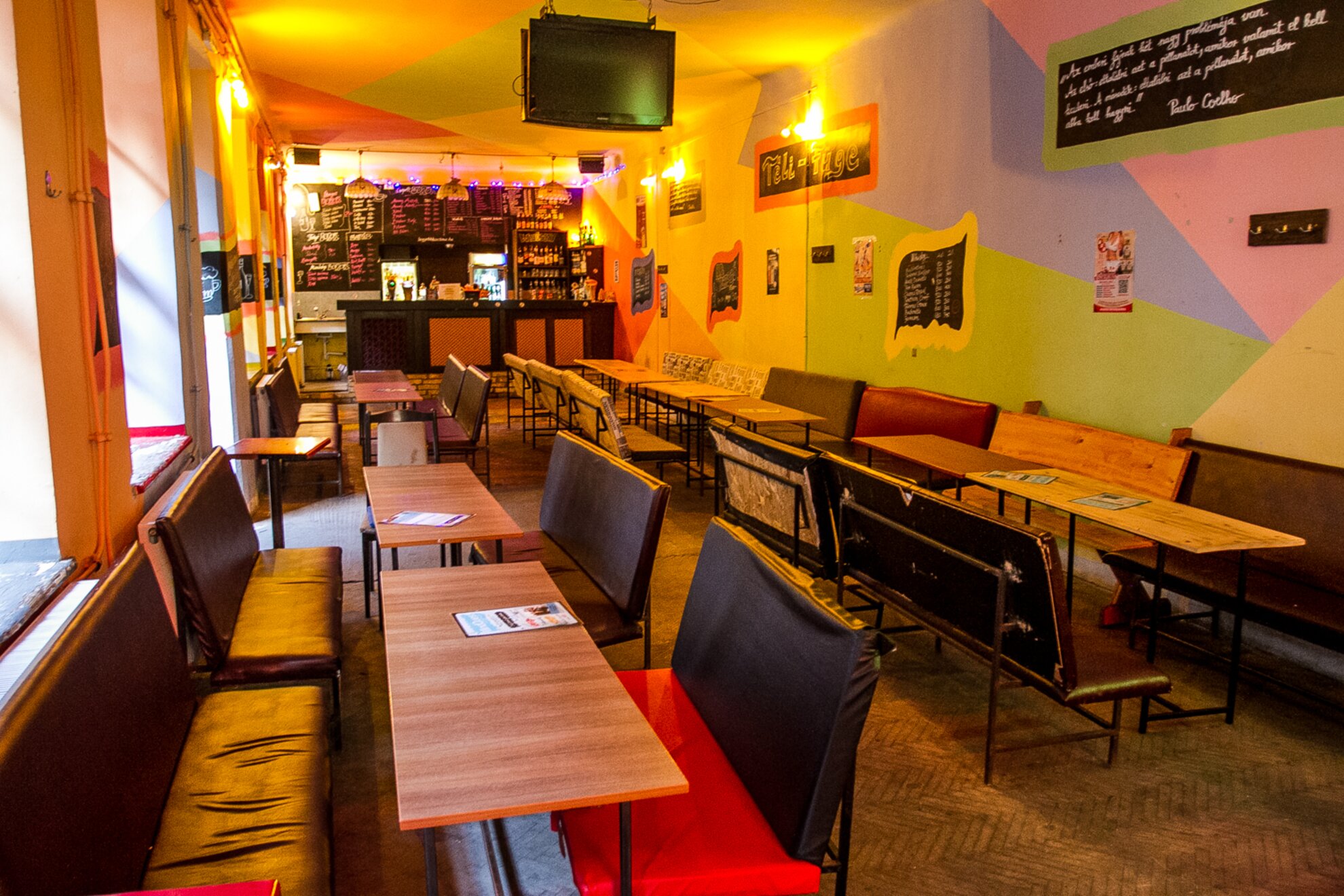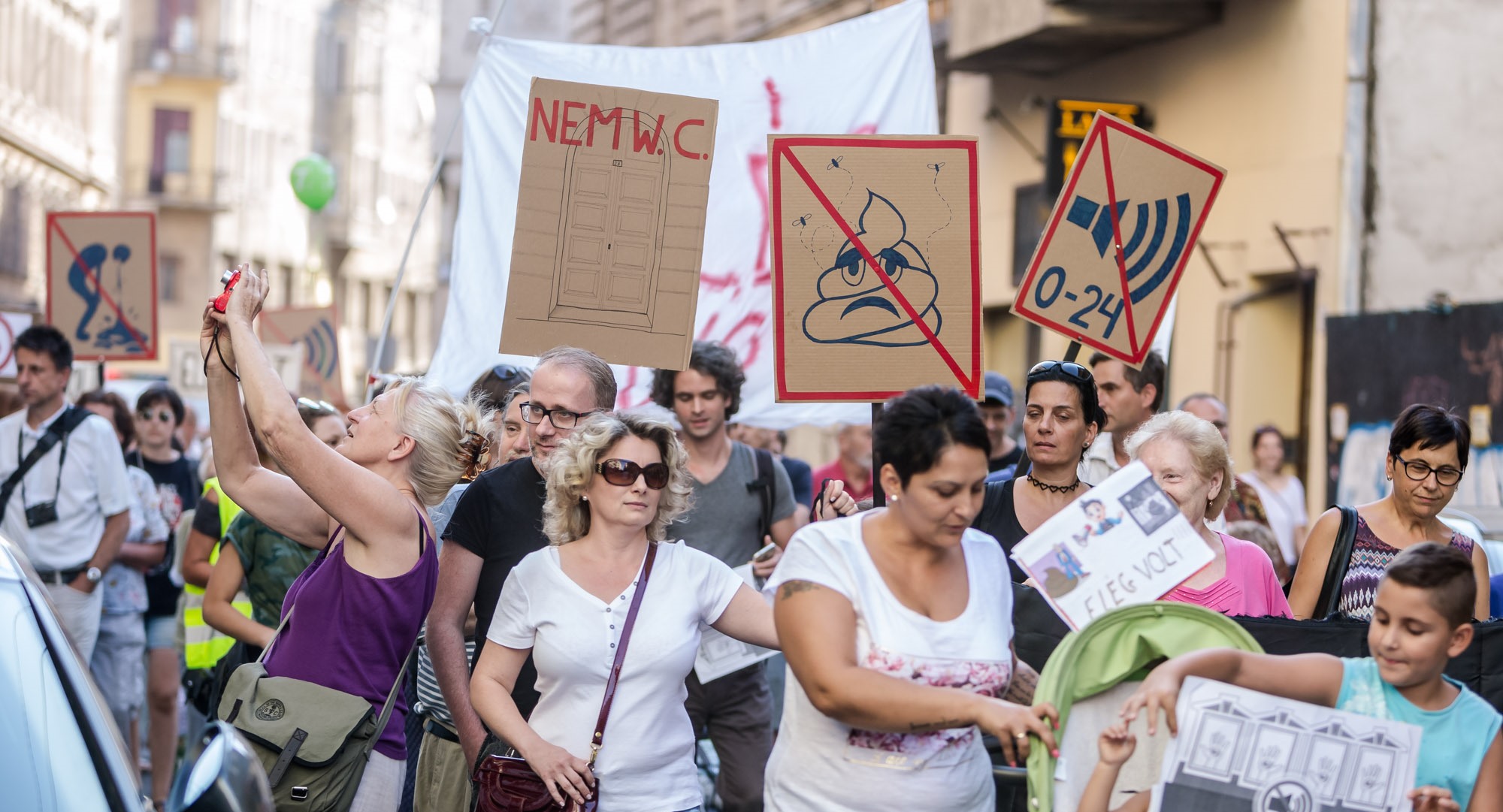In the heart of Budapest, District VII is a treasure trove of architectural delights – and the city’s party quarter. An unstoppable ruin pub revolution now attracts huge crowds of loud fun-seekers every night. Embittered residents have raised their own voices against increasing noise and street waste, forcing bar owners to defend their livelihoods. Both sides have held street protests. The local council is bringing in cleaning machines and new toilets, and a midnight curfew has been proposed. A referendum will now decide the issue – and perhaps change the face of District VII forever. We speak to both sides in this fierce debate.
Strolling through District VII at night feels like a festival. And when the first rays of sunshine hit the streets the next morning, local residents have to maneuver around piles of waste left behind by loud crowds from the night before, the concrete glistening with sundry sickening substances. Now change is in the air. One of the most chaotic streets, Kazinczy, will be turned into a car-free promenade after dark, while an extraordinary city council held in early October introduced extra measures to improve district infrastructure.
A larger slice of the budget will go towards new cleaning machines, the public toilets on Klauzál Square, Rózsák Square and Bethlen Gábor Square will soon be renovated and new ones installed around busy areas, such as the playground on Kazinczy Square. Police presence will be increased. Furthermore, renting out any property or business premises owned by the local government for nightlife-related businesses will be prohibited.
One crucial question remains, one that concerns owners of key local businesses, and one that will soon be decided by referendum: noise regulation. If implemented, all bars and clubs will have to close at midnight. Currently in Budapest, inner District VII is the pretty much last neighborhood where pubs can stay open until 6am.
To make their demands clear, residents have formed an NGO and held demonstrations. Some are all for the midnight closure, most would be happy with a bit of noise if the parties here were more controlled and civilized. They want to stop the pervasive ‘anything goes’ attitude, and are calling for an increased police presence and proper sanctioning of any infringements. Ultimately, they would like a neater neighborhood that people don’t use as their own big playground.
As for the bars, many rely on the District VII nightlife vortex for their incomes. They have also held street protests – many do everything to coexist with residents and have been trying to reach a conflict-free compromise. For them, a control in opening hours would have crucial consequences.
We interviewed residents of different ages and social backgrounds, as well as owners of various bars, from small and cheap to sophisticated, plus the city’s most popular ruin pub.
Residents:
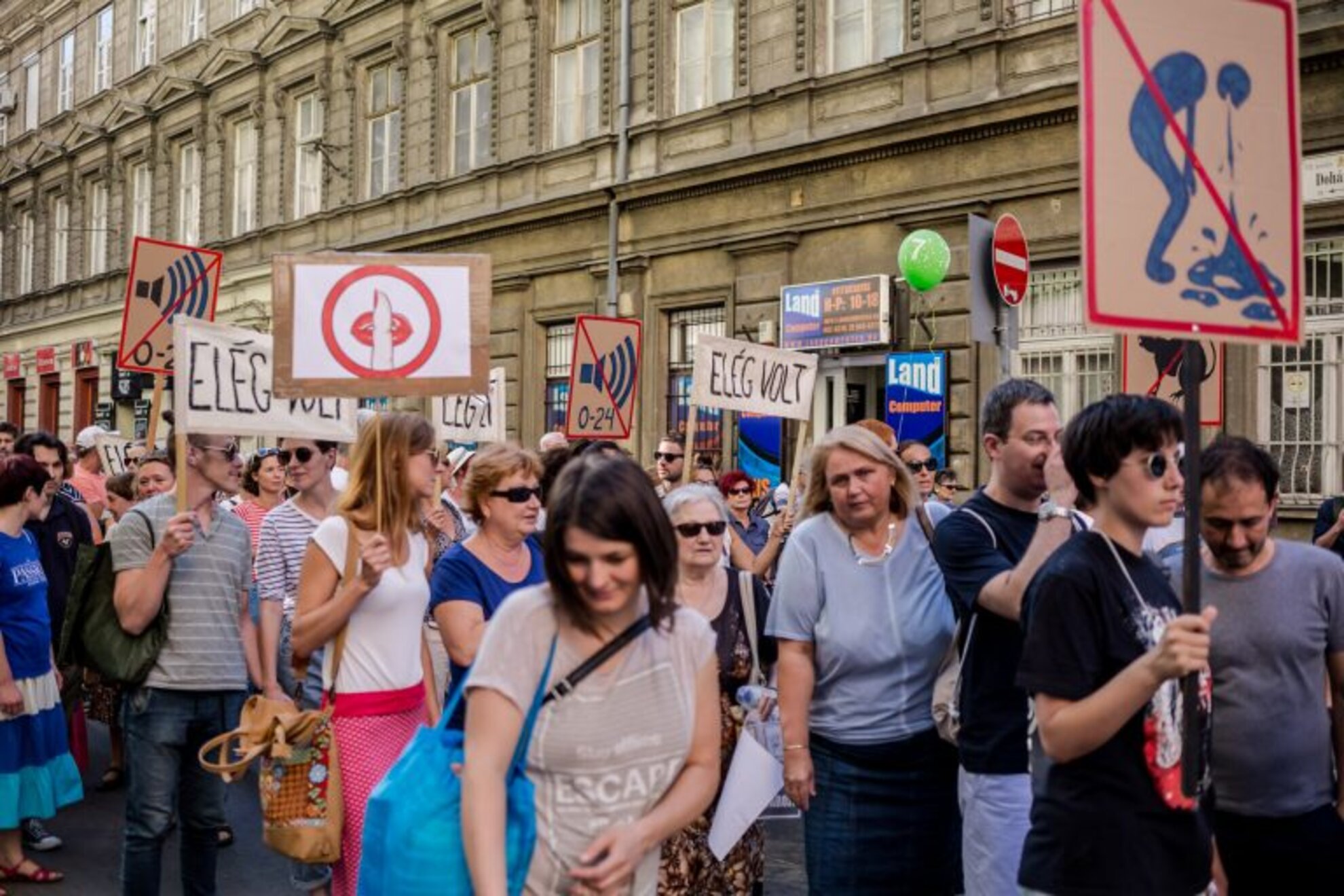
- Petra (34)
- Dániel (47)
- Eszter (36)
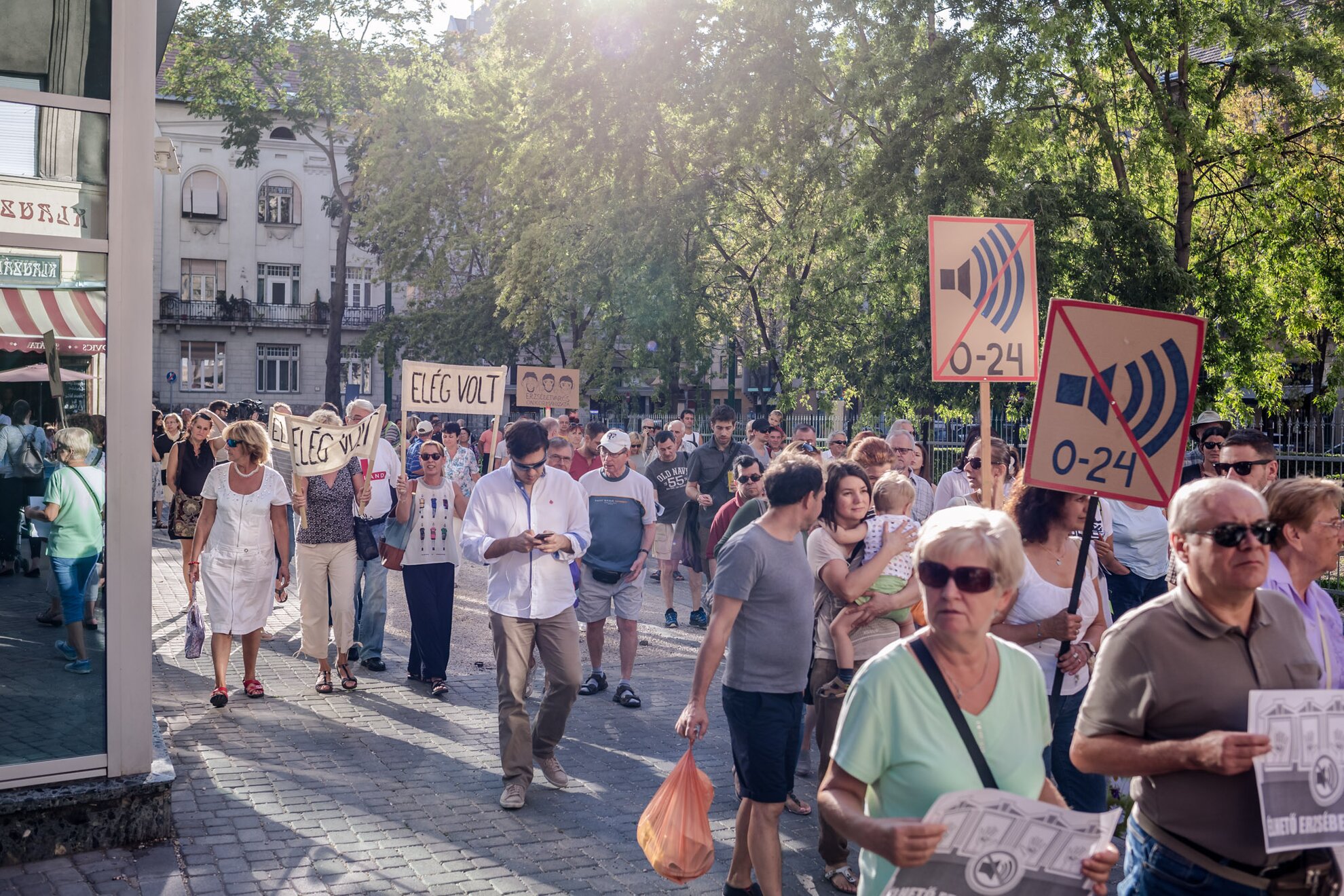
- Imre (42)
- József (65)
- Owners of ruin pubs, bars and nightclubs
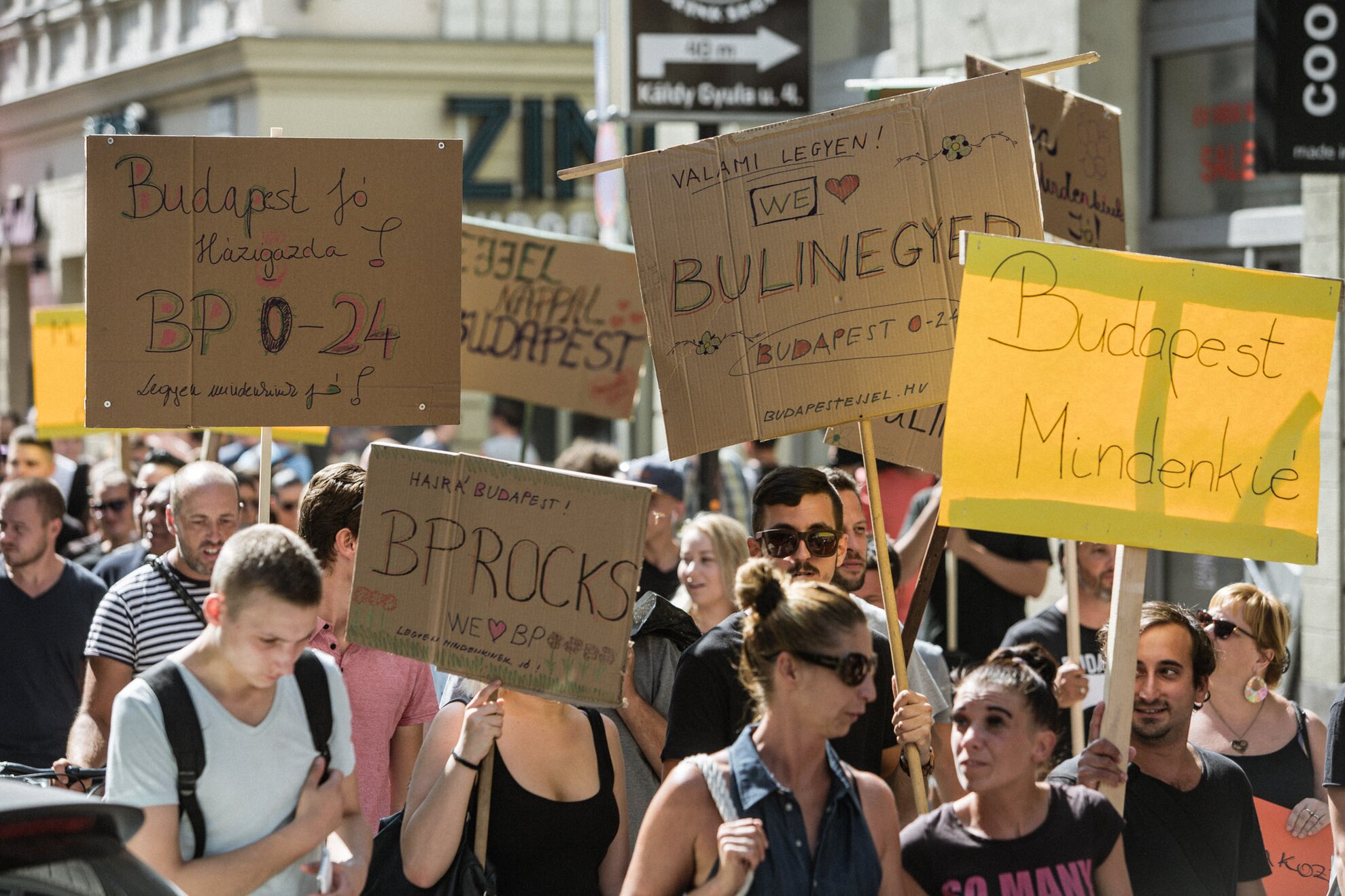
- Barside
Bijou cocktail bar Barside on Madách Square has been built around a more sophisticated clientele, offering high-end drinks and a small covered terrace. Manager Andris Ódor does a lot to be on good terms with residents, often inviting them in for coffee. Stag parties are limited to three drinks per person.
“My opinion matches that of the residents, at least 85%. I also care about gutters being cleaned, about not having to constantly wash the square, and not having my plants die from urine and alcohol. I’m also worried about the increase in crime. But I think that coming up with a solution to make everyone close their doors at midnight is a problem. Madách Square is a more sophisticated neighborhood, but what’s happening on Kazinczy,Nagydiófa and in the Gozsdu Courtyard affects us as well. The countless problems there brings people into the equation who would otherwise not be too involved in the party quarter. So, those of us who have put our hearts into hospitality, and live for our business, we will come off worse – bigger pubs will always find a way to cope. But what about those small, quiet, easy-going hangouts that don’t even have a terrace? There are any number of these kinds of places in District VII.”
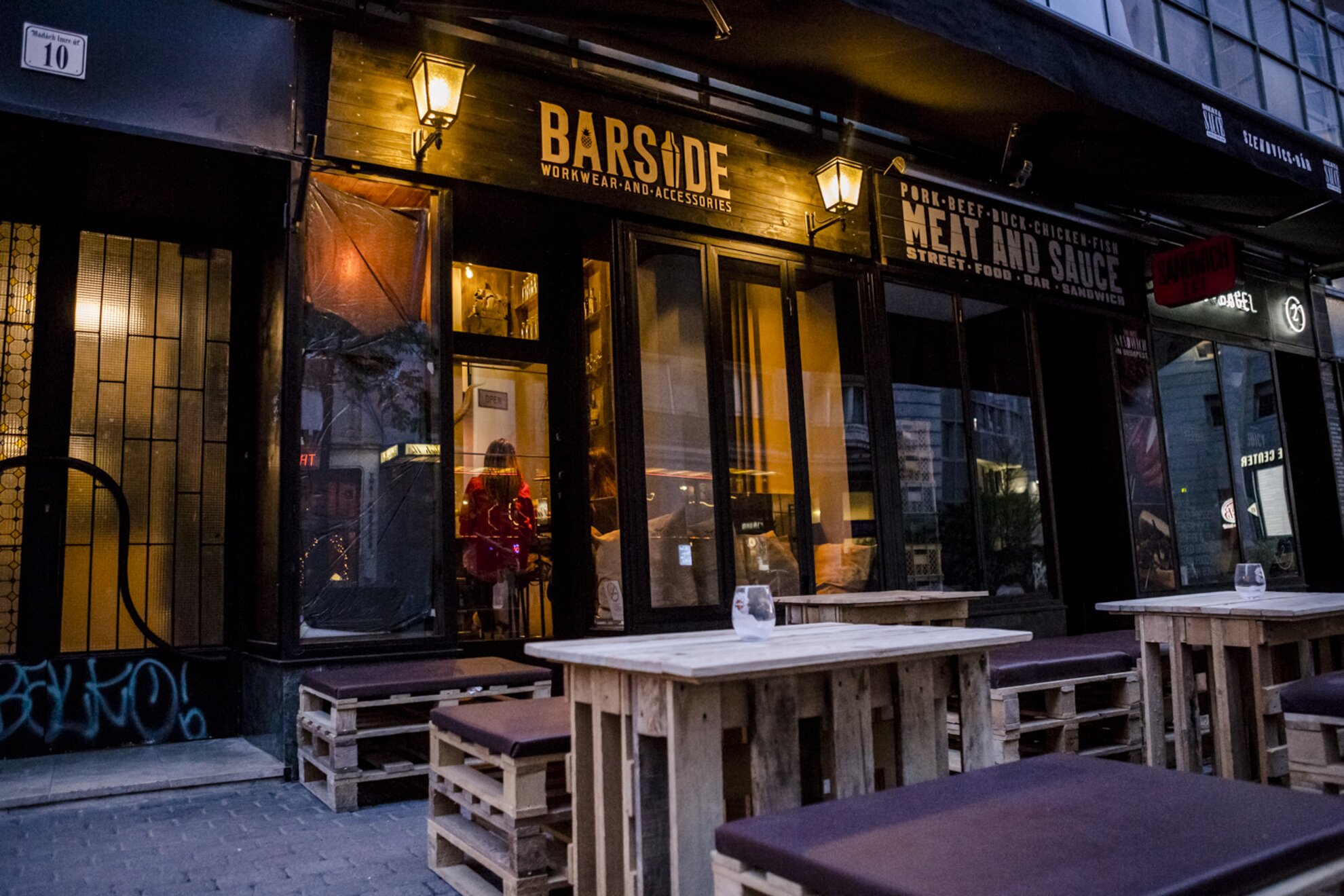
“There are different types of residents as well. They complain about whatever they can: why can’t we close at 10pm, why can’t they relax on their day off, why can’t we wash the square at 9am. If all pubs here close before midnight, by 4am residents will be woken up by homeless people or rampaging drunk tourists. There are several sides to this story and nobody is ready for a compromise. I don’t complain about their dripping air-conditioners or throwing their cigarette butts down on our nice terrace cover.”
- Szimpla
The owner of Budapest’s oldest and most popular ruin pub, Szimpla Kert, Ábel Zsendovits, thinks that there are other solutions than introducing a midnight curfew that would severely affect his business. He supports the Night Mayor Budapest initiative that calls for a mediator between residents and businessmen by involving the authorities – this was tested in District VII on September 16th, with positive effects. He also thinks that the ‘anything goes’ attitude could be smoothed over with unified communication. Hotels, taxis and airlines could distribute leaflets about the rules in Budapest.
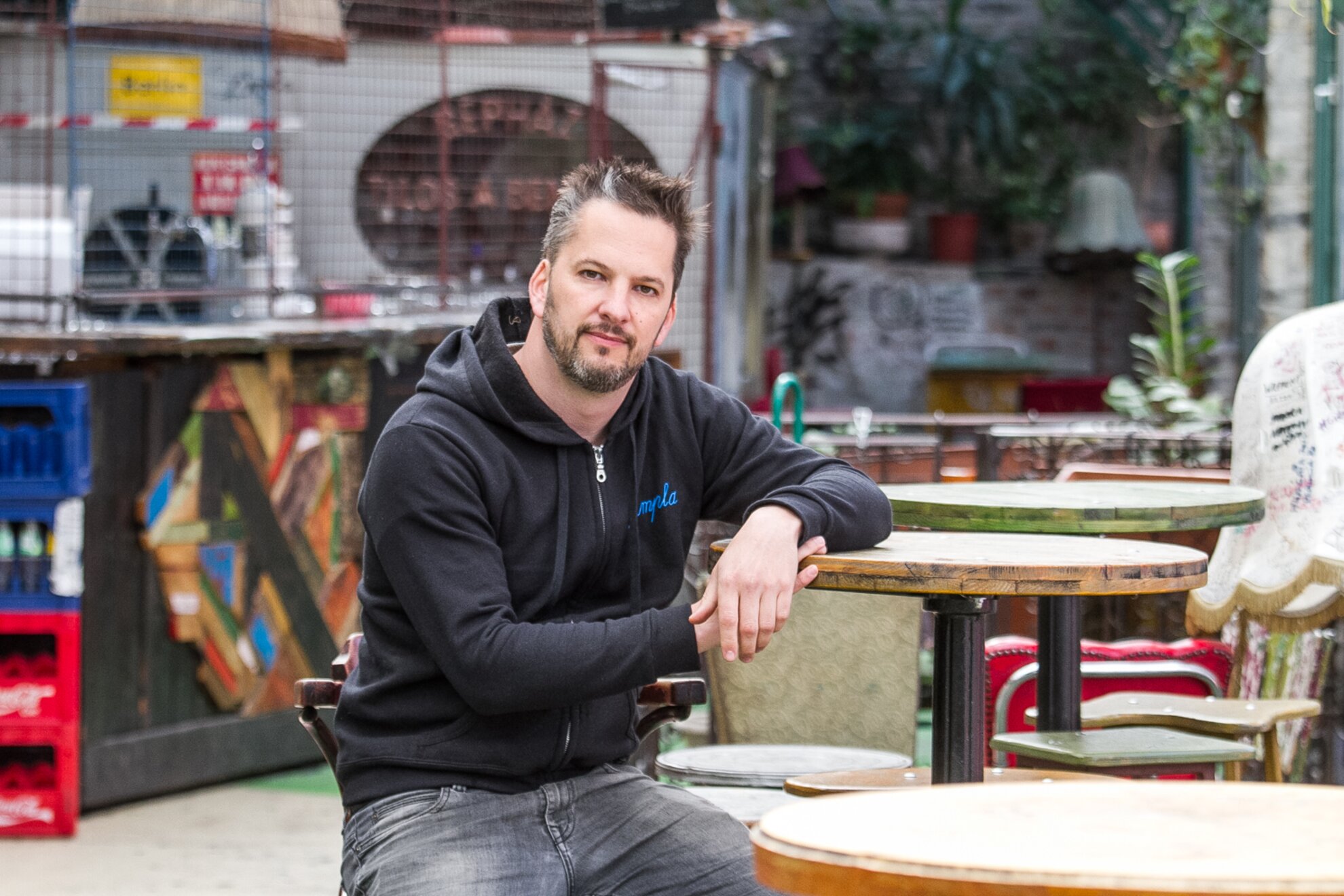
Ábel emphasized that noise from Szimpla doesn’t bother the residents any more, as they came to a compromise with almost everyone who lives here. Szimpla installed soundproofing and even bought somebody’s flat. He thinks that if all pubs closed at midnight, tourists would go back to their hostels and hotels and would continue the party there. Residents would still be affected while Szimpla would lose a major part of its income.
Ábel actually lives a block away from Szimpla. “I started settling in by installing air-conditioning and soundproofing the windows. Those who own an apartment here think that they are entitled to fresh air and a parking space right in front of their building. This isn’t the case in the middle of any major metropolis.”
- Fogas Ház
The merging of two cult ruin pubs last spring, Instant and Fogas Ház, into one huge complex also created discontent in the neighborhood. The owners think that noise coming from their combined venue is not a problem as the complex is properly soundproofed, something verified by the authorities.
“The street is beyond everyone’s control, and there is not enough cooperation to solve these issues. When a recent initiative was tested out, it was clear that an English-speaking co-worker would help the situation. Most tourists come from Western Europe and the USA, where they would be fined for unruly behavior. If one night dozens of people were fined 100 euros for peeing on the street that would have an effect in the future.” – said one manager.
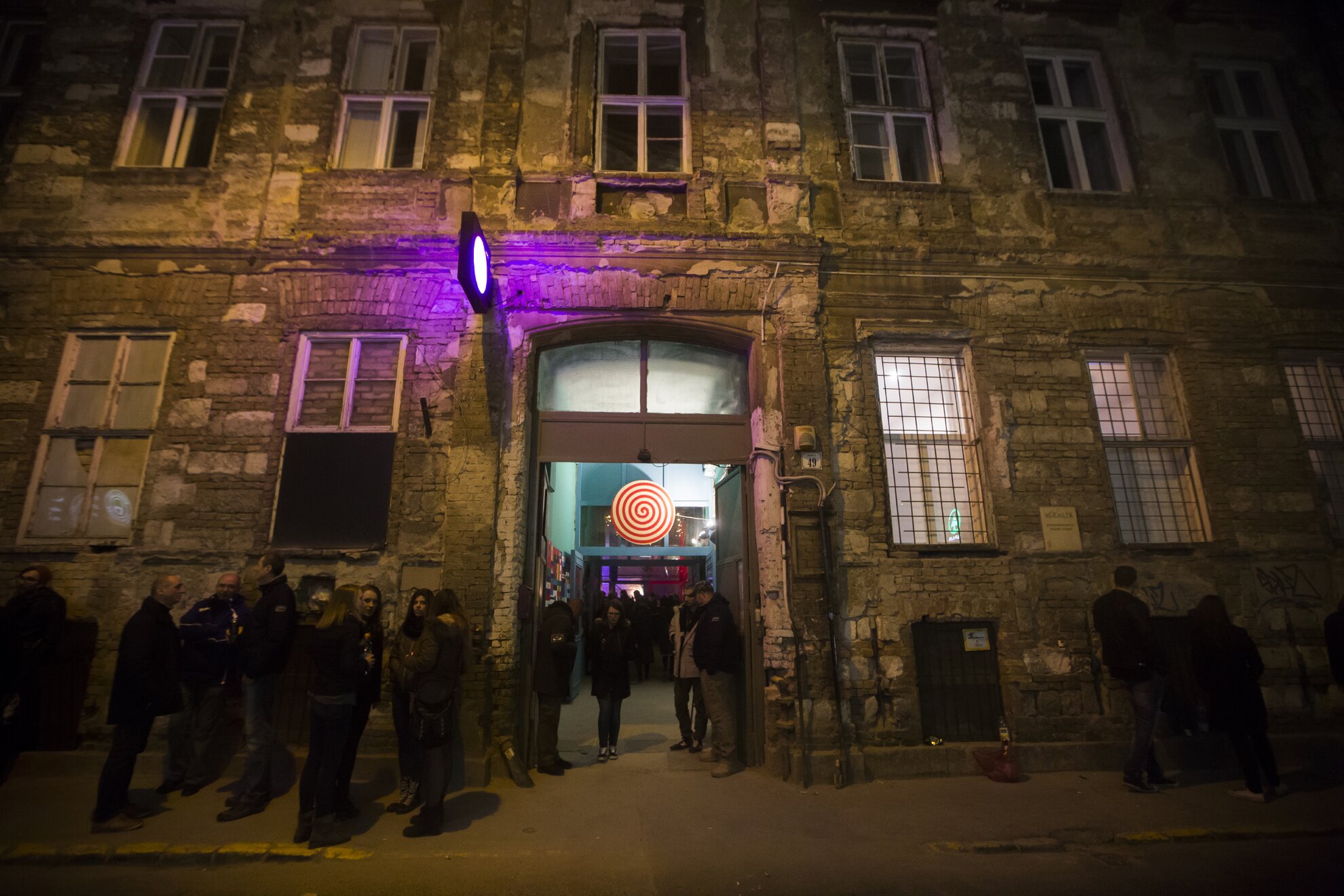
Crime, prostitution and drug dealing are another general problem they are trying to deal with: “When someone comes into our club after being offered drugs on the street five times, it sends a negative message. What we can do about it is a different matter. We do everything that is within our control, such as cleaning, not allowing our guests to take their drinks outside, not letting just anyone use our toilets, placing bins outside, assessing noise and controlling numbers of people inside. Residents have react positively to our endeavors, but others are less cooperative and not willing to communicate. It’s happened before that a resident called someone for noise testing, but when they arrived they weren’t let in.”
“We have a good relationship with the residents. Our waiters collect glasses every hour, and we have security staff who stand outside controlling crowds. We have changed the windows in the building and community representatives have our manager’s phone number. We aim to handle all complaints immediately.”
- 4-es 6.os, Füge Udvar, UdvarRom, Stifler
Around other, less prominent bars, many think that a noise restriction order would totally shrink the party quarter, and that they would lose a lot of custom as nobody would come out after 10pm any more.According to one bar owner: "We agree with residents that people walking around the neighborhood can be really loud. We would like to emphasize the need for cooperation between security guards and police. People working in hospitality are currently collaborating in that." These pubs have also joined the nightlife initiative, and are ready to do their utmost to keep the noise down, for more order in District VII. "There are so many of us. If people working in hospitality could collaborate more closely, we could do a lot, both in terms of social work and communication."
